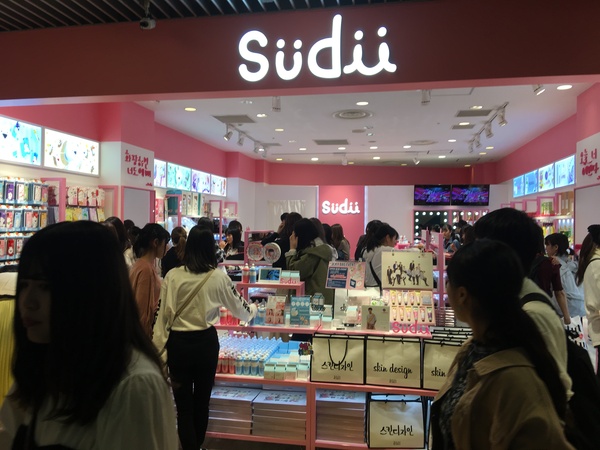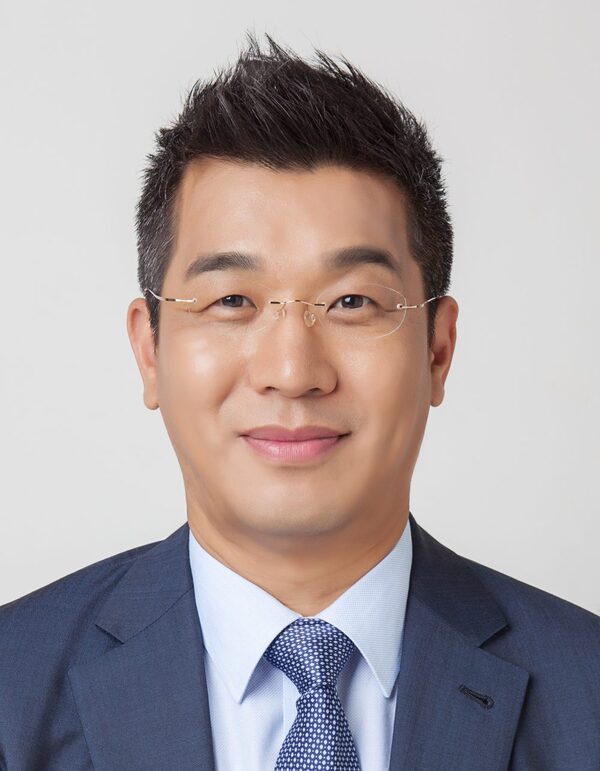
Kim spreads K-pop, K-food, K-beauty across Asia
No matter what it is related to Korea, ask him. He has pulled out all the stops to spread the Korean Wave, otherwise known as “Hallyu,” across Asia for the past two decades.
He is Kim Dueg-hong, who has operated various businesses associated with Korea in countries such as Japan, Vietnam, China, and Malaysia.
The Korean Wave refers to the phenomenon of Korean entertainment and culture gaining popularity around the globe.
The frenzy over Korea’s pop culture originally blossomed in Asia, but now shows signs of spreading to other regions like Europe, North and South America, and the Middle East as amply demonstrated by the soaring popularity of boy group BTS.
Initially, it was mostly about entertainment - K-pop. But after that, food and cosmetics also rolled around the world, which observers dubbed K-food and K-beauty, respectively.
Overall, the Korean Wave is also called K-culture, which encompasses K-pop, K-food, and K-beauty. And Kim’s career has always been about promoting K-culture.
Kim & K-food

Kim was born and studied in Korea, but struggled to find a job in 1998 in the aftermath of the Asian financial crisis, just as most of his contemporaries did.
That prompted the young entrepreneur to cross the East Sea (Sea of Japan) to search for business opportunities in the world’s No. 3 economy.
At first, he languished. For one, he couldn’t speak Japanese well back then. Hence, he studied and worked at the same time.
In 2000, he joined a Korean food company in Tokyo. And two years later, he started his own K-food business in Yokohama. Thereafter, he tried hard to spread K-food in Japan by, for example, opening Kim’s Club in Tokyo in 2004.
Most recently, in 2016, he brought the Korean chicken brand Goobne to Japan; and over the past three years, has launched five Goobne restaurants there.
The brand has won over the hearts and minds of Japanese consumers.
“People wait for hours to eat at our Goobne restaurants. I will keep developing competitive K-food businesses here down the road,” Kim said.
Kim & K-pop
Although the food industry offered a stable income, profitability was not that great for the ambitious businessman, so he turned his eyes to K-pop and K-beauty.
Kim set up the Hallyu Department Store in downtown Tokyo in 2008, and a similar one in Yokohama two years later.
The first one was a big hit. Every day, tens of thousands of Korean Wave fans visited the department store, which sells K-pop items and Korean cosmetics on top of Korean food.
“In the late 2000s, TVXQ generated a great boom in Japan. And various boy and girl groups also helped boost the K-pop syndrome. K-pop fans lined up to get through the doors of the Hallyu Department Store, underpinning our bottom line,” Kim recollected.
TVXQ is a five-piece boy band, which debuted in 2003, and gained huge popularity across Asia.
In the mid-2010s, Kim’s Hallyu Department Store suffered from setbacks, but he managed to turn the store around, and now it is cruising.
“We have held various concerts and fan meetings with K-pop stars at the Hallyu Department Store, and similar events will take place in the future to draw in K-pop fans,” he said.
Kim & K-beauty
Korean cosmetics are one of the most popular items at the Hallyu Department Store. For example, made-in-Korea BB cream products were jackpots.
This prodded Kim to create his own brand MISCOS, which has such lineups as BB creams and hand creams.
And he brought various Korean cosmetics brands to Japan, but they were not enough - Kim wanted to have his own brand.
That’s why he founded Skin Bank in Korea last year, which created its own brand Sudii.
Currently, Sudii products are available at five stores in Tokyo and Osaka, and Kim strives to open new stores not only in Japan but also in other Asian countries.
“Sudii deals with products that target trend-sensitive young consumers in their late teens and early 20's. Japanese youngsters have already shown great interest in Sudii,” Kim said.
Other Asian markets & the future
Kim embarked on his venture in Japan and has mostly sought business opportunities there by spreading the word on K-food, K-pop, and K-beauty. Obviously, the virus pandemic negatively affected his business, but he remains optimistic despite the difficulties.
To expand his business horizon, he has tried to tap into other Asian countries such as China, Malaysia, and Vietnam.
“In 2018, Korea hosted the Winter Olympic Games. Next year, Tokyo will hopefully host the Summer Olympic Games despite COVID-19. A years later, the Olympics will take place in Beijing,” Kim said.
“Now it’s an Asian era. The world is watching the continent. I hope to promote K-beauty, K-pop, and K-food across Asia. In particular, I will put Sudii on the front burner to bring K-beauty to as many people as possible.”

